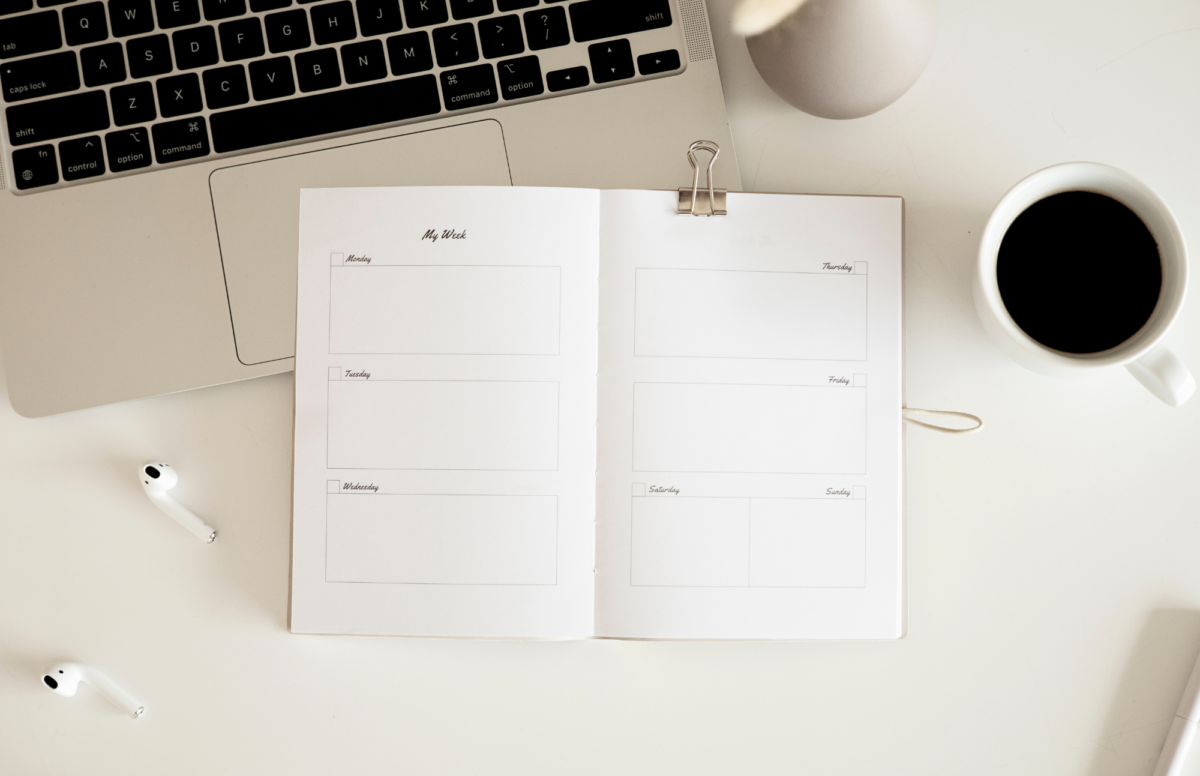Planners for ADHD: Daily vs. Weekly Formats

For adults with ADHD, finding the right planning system can be transformative for managing daily life and reaching their goals. However, for most of us, just any planner is not going to work. It is important to find what works for us, not against our neurodiverse brain.
Adults with ADHD often struggle with organization, time management, and task completion. A well-designed planner can be a powerful tool in helping to structure daily life, reduce overwhelm, and increase productivity while actually enjoying some of our tasks. However, one of the biggest decisions when choosing a planner is selecting between a daily or a weekly format. Each has its own advantages and considerations, depending on individual needs, lifestyle, and ADHD-related challenges. Let’s examine the advantages and disadvantages of each format.
Daily Planners: Structure and Focus
Advantages:
- Detailed Scheduling – Daily planners provide ample space to break down tasks, appointments, and reminders into structured time blocks, helping to prevent forgetfulness and missed deadlines.
- Improved Focus – By concentrating on one day at a time, individuals with ADHD can avoid feeling overwhelmed by the bigger picture.
- Encourages Routine – A daily planner supports the development of consistent routines, which can be crucial for managing ADHD symptoms.
- Space for Notes and Reflection – Daily pages often include sections for notes, reflections, or habit tracking, reinforcing mindfulness and goal setting.
Considerations:
- Daily planners can be bulky due to the number of pages required for a full year.
- Some individuals may find it tedious to fill out pages every day, especially if they experience burnout or forgetfulness.
- The focus on daily tasks may make it harder to see long-term goals and deadlines at a glance.
Weekly Planners: Big-Picture Thinking
Advantages:
- Overview of the Week – Weekly planners allow users to see upcoming appointments, deadlines, and priorities all in one spread, making it easier to plan ahead.
- Less Time-Consuming – With a weekly format, users only need to set up their schedule once per week, which can be more manageable for those who struggle with consistency.
- Encourages Prioritization – The limited space encourages users to focus on high-priority tasks rather than listing every detail.
- More Portable – Weekly planners tend to be thinner and lighter, making them easier to carry around.
Considerations:
- Some individuals with ADHD may struggle to break down large weekly goals into actionable daily tasks.
- A lack of detail might lead to missed deadlines or forgotten appointments.
- Overwhelm may still be an issue if too many tasks are listed without clear daily guidance.

Which One is Right for You?
The best choice depends on your personal workflow, ADHD challenges, and how you process information. Consider the following questions:
- Do you need structure and step-by-step guidance? A daily planner may be the best option.
- Do you prefer an overview of the whole week? A weekly planner might work better.
- Are you struggling with consistency using your planner? A weekly planner is easier to update.
- Do you need to break tasks into small steps? A daily planner offers more space for detailed planning.
For some, a combination of both may be the perfect solution. For example, using a weekly planner for goal setting and a daily planner for detailed execution can provide balance and flexibility.
Conclusion
Both daily and weekly planners offer valuable benefits for adults with ADHD, and the key is to choose the format that aligns with your lifestyle, habits, and executive functioning needs. Experimenting with both formats, or even a hybrid approach, can help determine what works best for you. For me daily works better, because I need a lot of structure. Ultimately, the right planner is the one that helps you stay organized, productive, and less overwhelmed.




